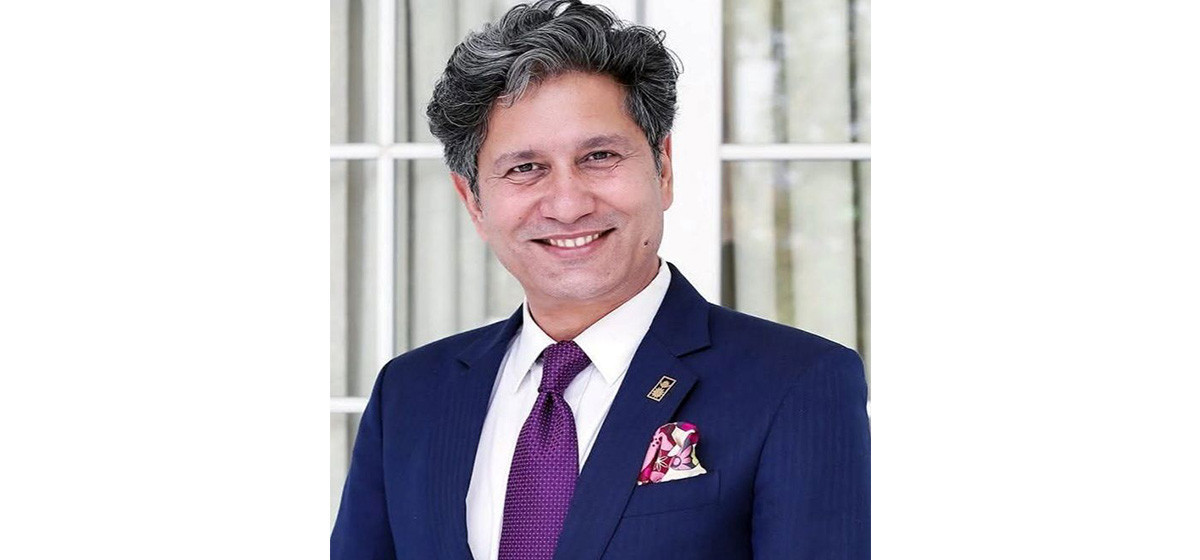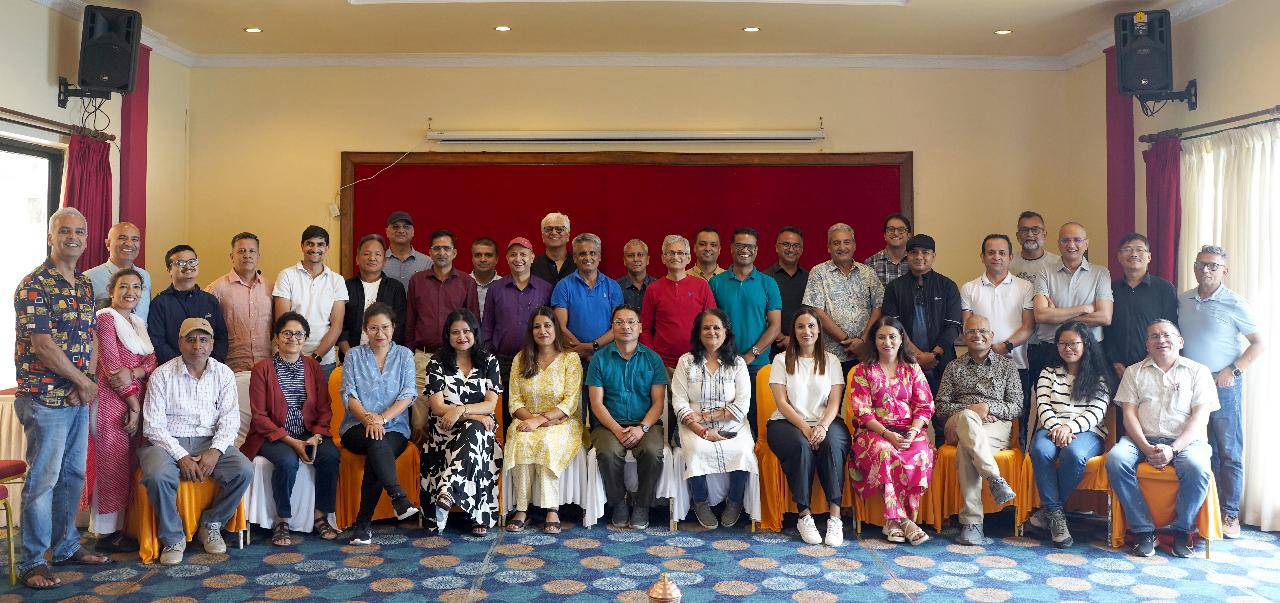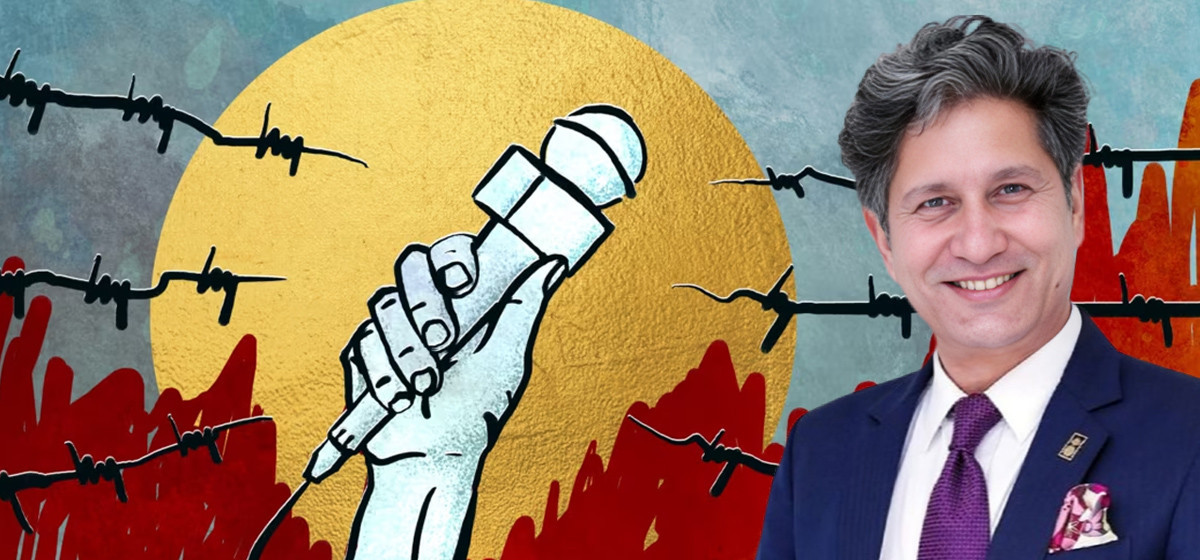KATHMANDU, June 13: Leaders of journalist associations have expressed outrage, stating that the court's restrictions on the media and journalists go against the constitution, laws, and international values and norms.
In an interaction program titled "Direct Court Intervention in Press Freedom and Its Way Out" organized by Sambad Dabali in Kathmandu on Friday, the leaders warned of launching street protests if the Kathmandu District Court does not withdraw its order to remove published/broadcast news and the arrest warrant issued against a journalist.
Ganesh Pandey, the president of Press Chautari Nepal, stated that issuing an arrest warrant against journalist Dil Bhusan Pathak and ordering the removal of news published/broadcast by various media outlets is a form of restriction on the press. He emphasized that the journalism sector should also act with responsibility while producing news and said that social media should not be linked with journalism. He pointed out that the recent incidents are a result of the Nepal Press Council (NPC) not being allowed to become stronger.
Kamal Giri, Chairman of Press Center Nepal, has criticized the judiciary for interfering with journalism despite the existence of autonomous bodies to regulate the media and take necessary actions. He stressed the need to resist such judicial overreach, saying, “All professional organizations should launch a movement under the leadership of the Federation of Nepali Journalists.”
Hearing concludes on writ petition against arrest warrant issue...

Similarly, Janma Dev Jaisi, President of the Working-Journalists Association, stated that the state has been consistently attacking journalists and media outlets, citing recent court orders against Dil Bhusan Pathak, NepalKhabar.com, and Bizmandu.com as unconstitutional.
Dilip Paudel, General Secretary of the Nepal Press Union, also expressed concern, saying that issuing an arrest warrant against journalist Pathak and ordering online media to remove published news articles is a violation of the constitution.
He said that even if legal action were necessary against journalist Pathak, it should have been pursued under civil law rather than the criminal code. “If the victim is dissatisfied with a news report, they can approach the NPC first. If still unsatisfied with its decision, a legal process can be initiated—but how can a court directly intervene at the very beginning? he questioned.
Similarly, Dibas Niraula, coordinator of the Socialist Lawyers’ Association, accused the court of bypassing the authority of the NPC and acting against legal provisions. “Even though the Constitution guarantees full press freedom in its preamble, it is unfortunate that state mechanisms and even the judiciary are now attempting to violate that very principle,” Niraula stated.
Surya Subedi, a member of the Federation of Nepali Journalists (FNJ), alleged that the government and the judiciary are colluding to selectively target journalists and media outlets one after another. He stated that the government is attempting to weaken the media to foster corruption and misgovernance, emphasizing the need for resistance.
Likewise, Prakash Khatriwada, an advisor to the Socialist Press Organization, claimed that the state is deliberately working to weaken the press in a planned manner. “The state apparatus is launching calculated attacks on the media, which has been fighting to establish rule of law and uphold democratic values. It’s time to stay vigilant and resist this assault,” he said.
Bairagi Jetha, an advisor to the Progressive Journalists Association, expressed the view that protests are necessary against the judiciary’s wrongful actions.






































